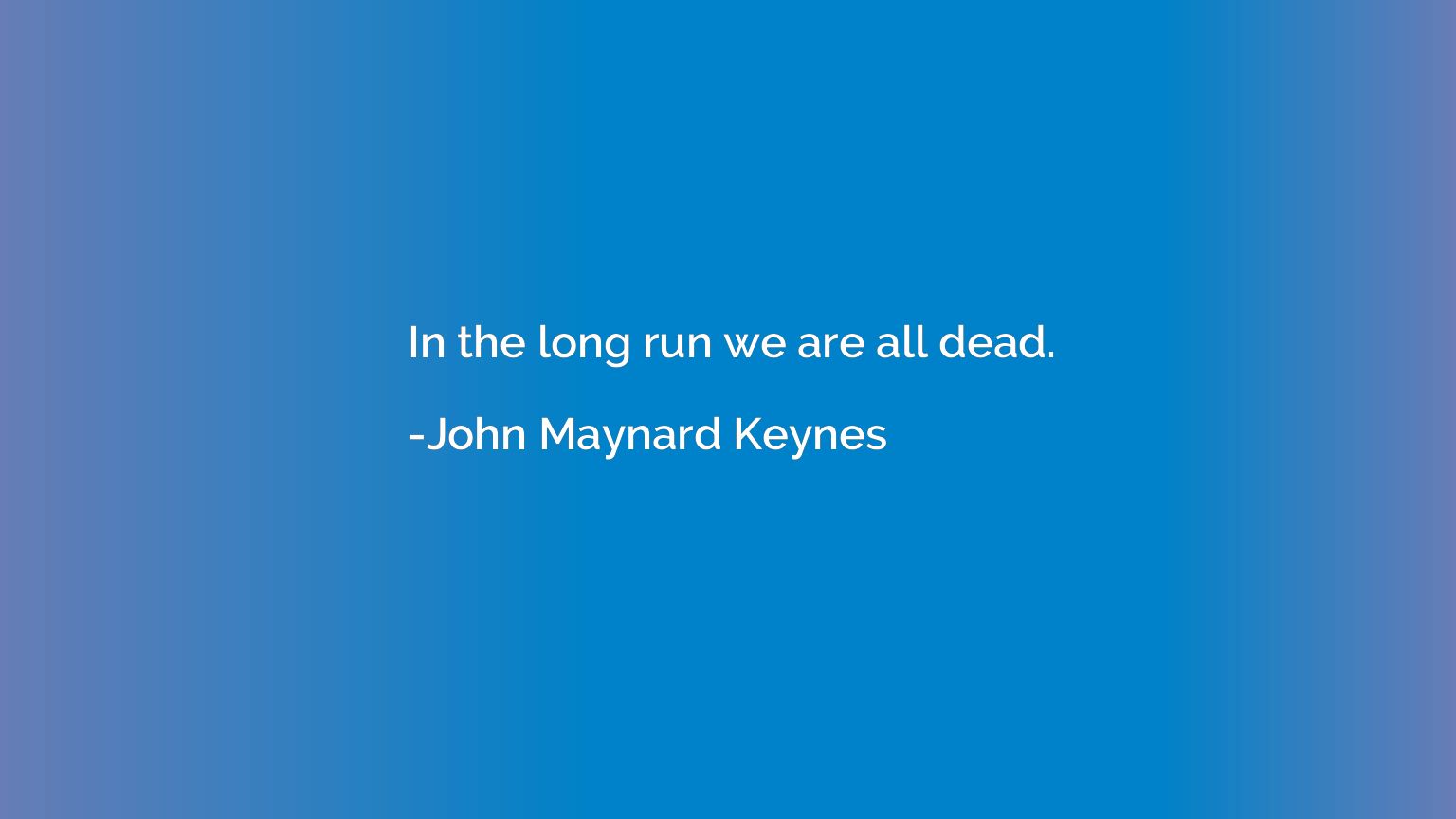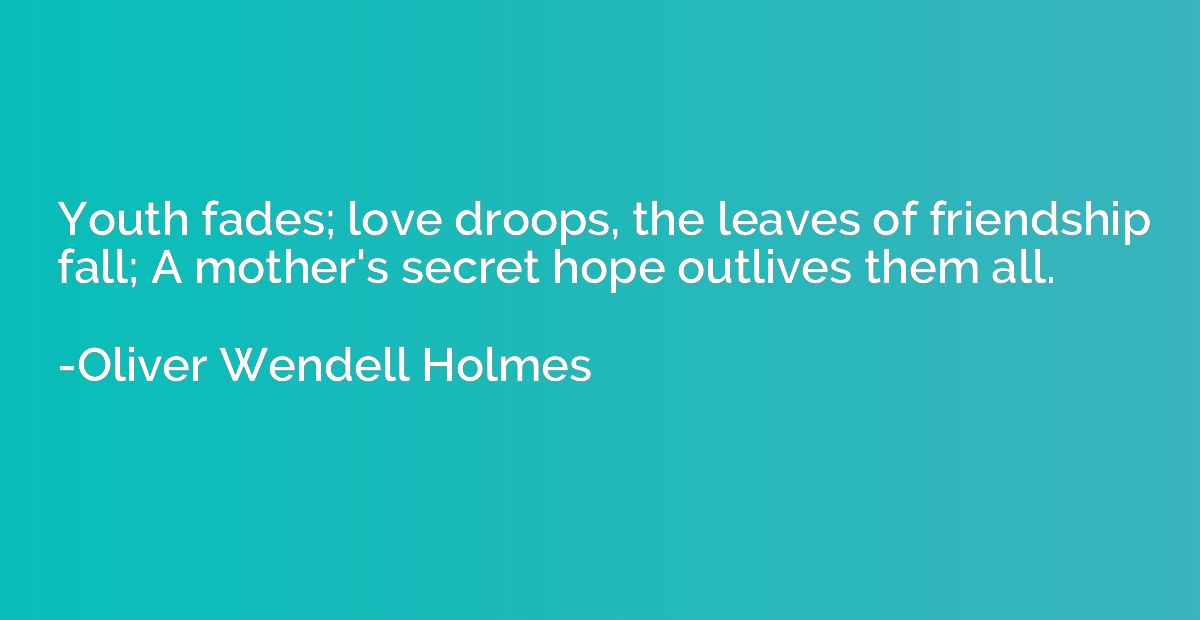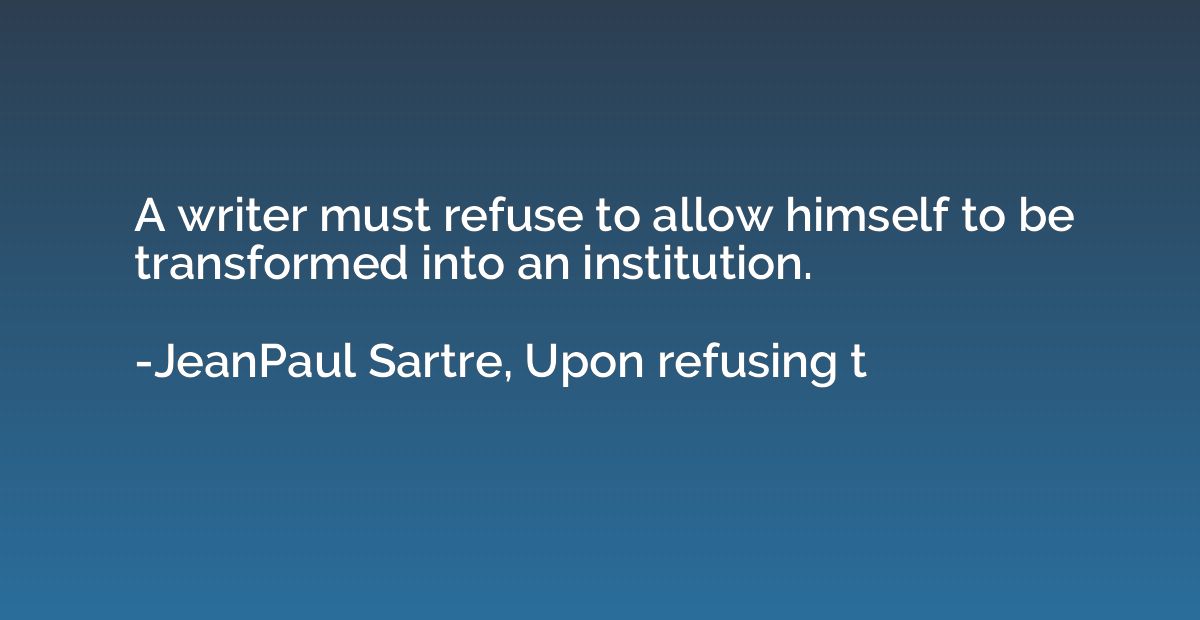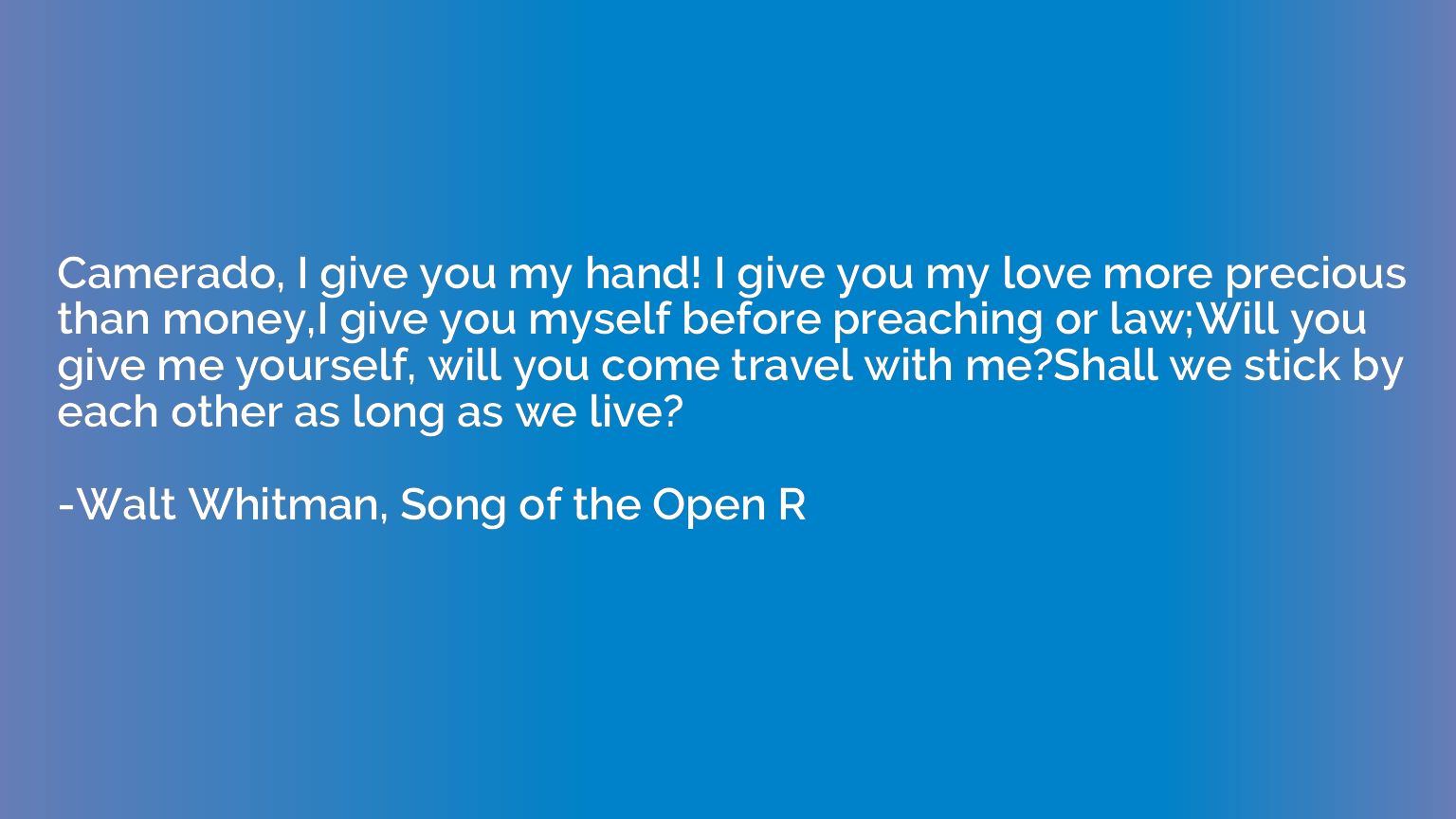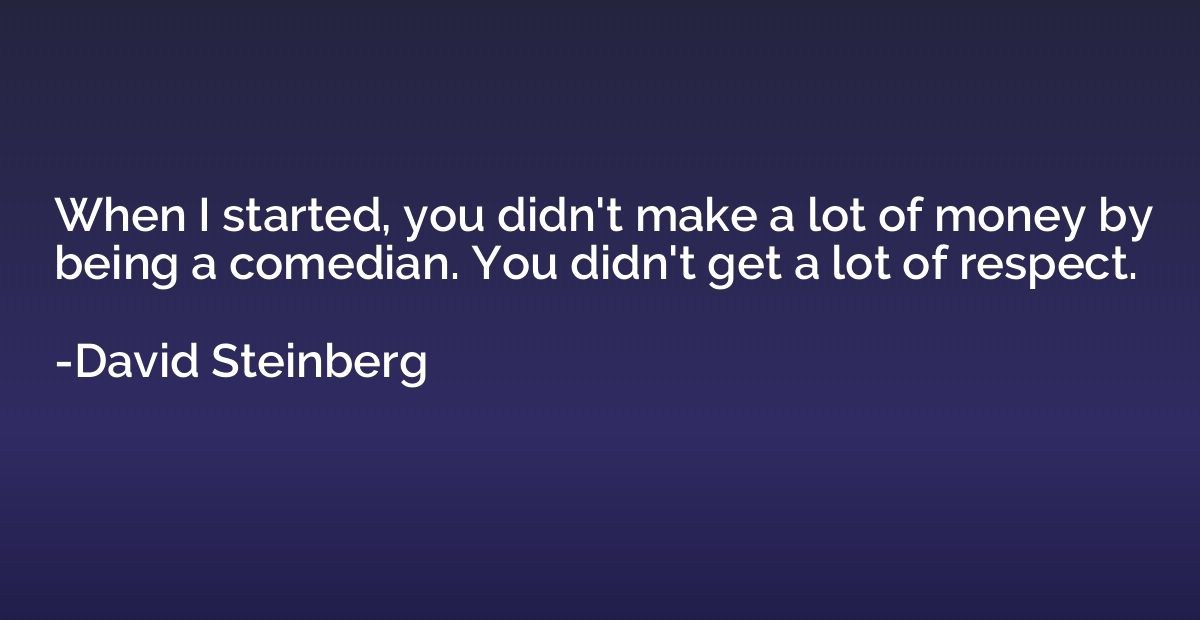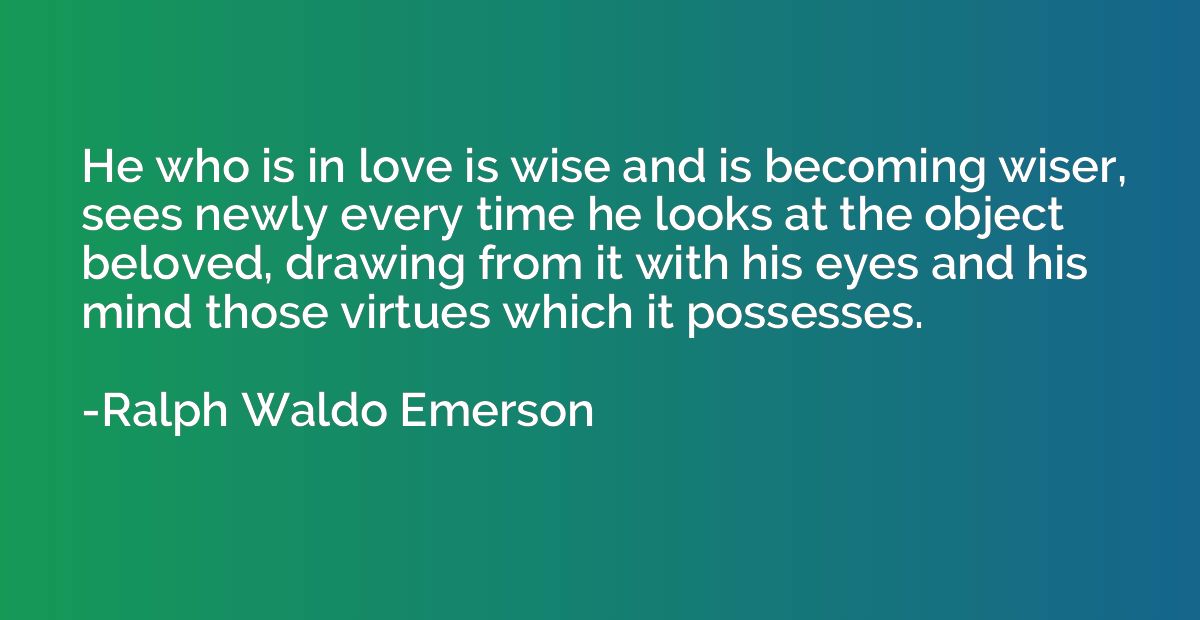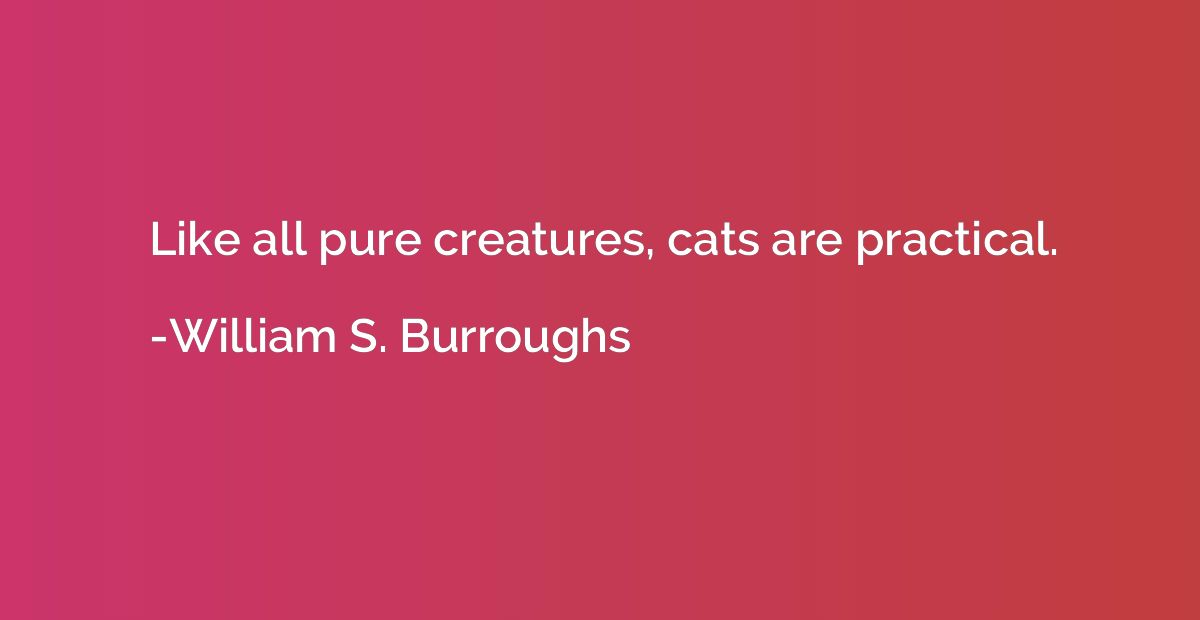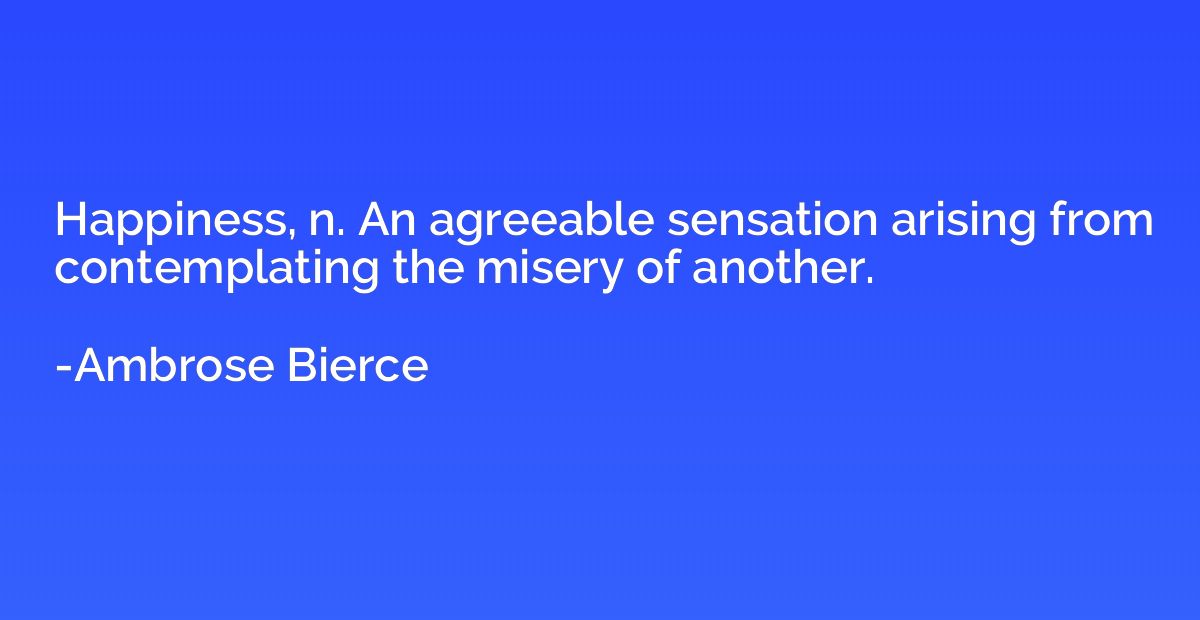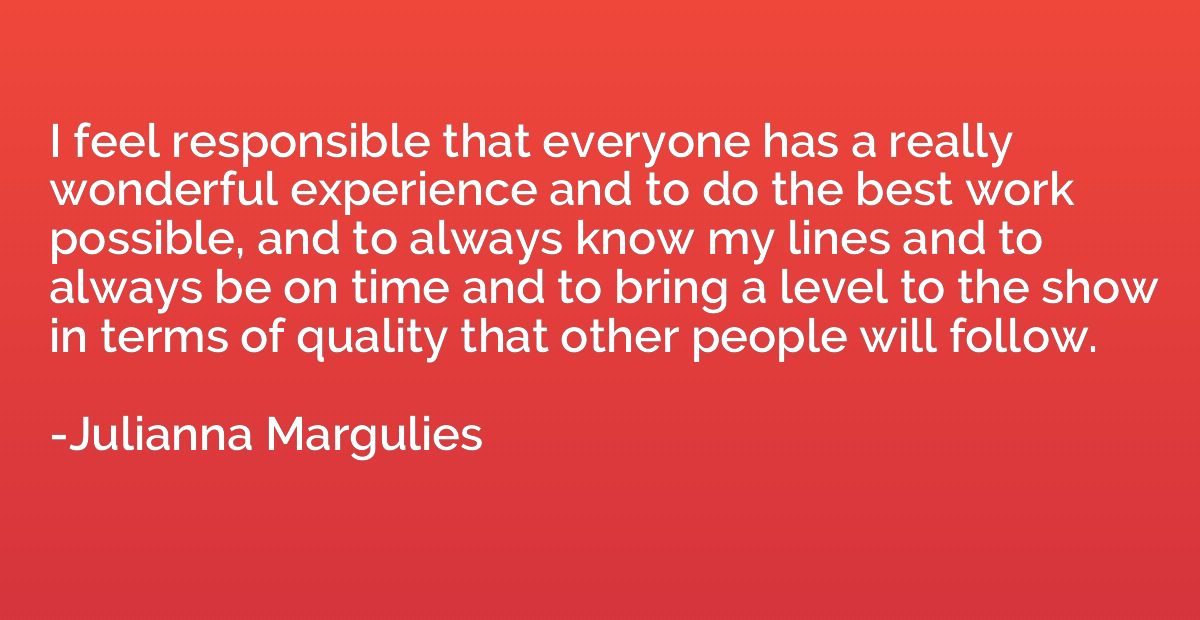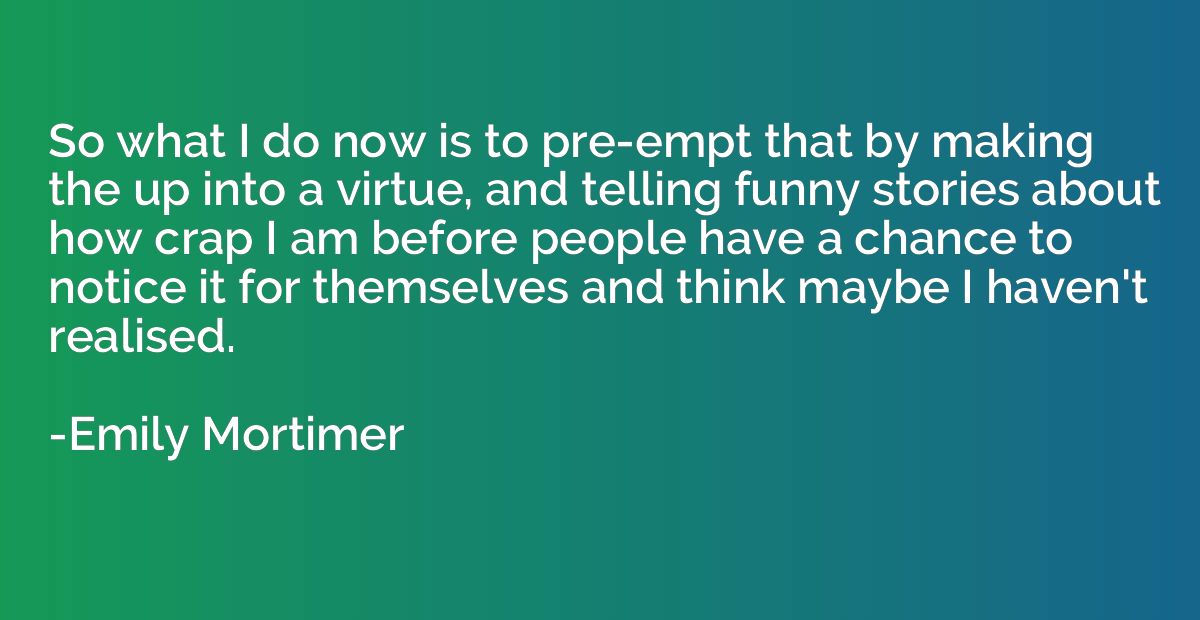Quote by William Shakespeare
This story shall the good man teach his son;And Crispin Crispian shall ne'er go by,From this day to the ending of the world,But we in it shall be remembered-We few, we happy few, we band of brothers;For he to-day that sheds his blood with meShall be my brother; be he ne'er so vile,This day shall gentle his condition;And gentlemen in England now-a-bedShall think themselves accurs'd they were not here,And hold their manhoods cheap whiles any speaksThat fought with us upon Saint Crispin's day
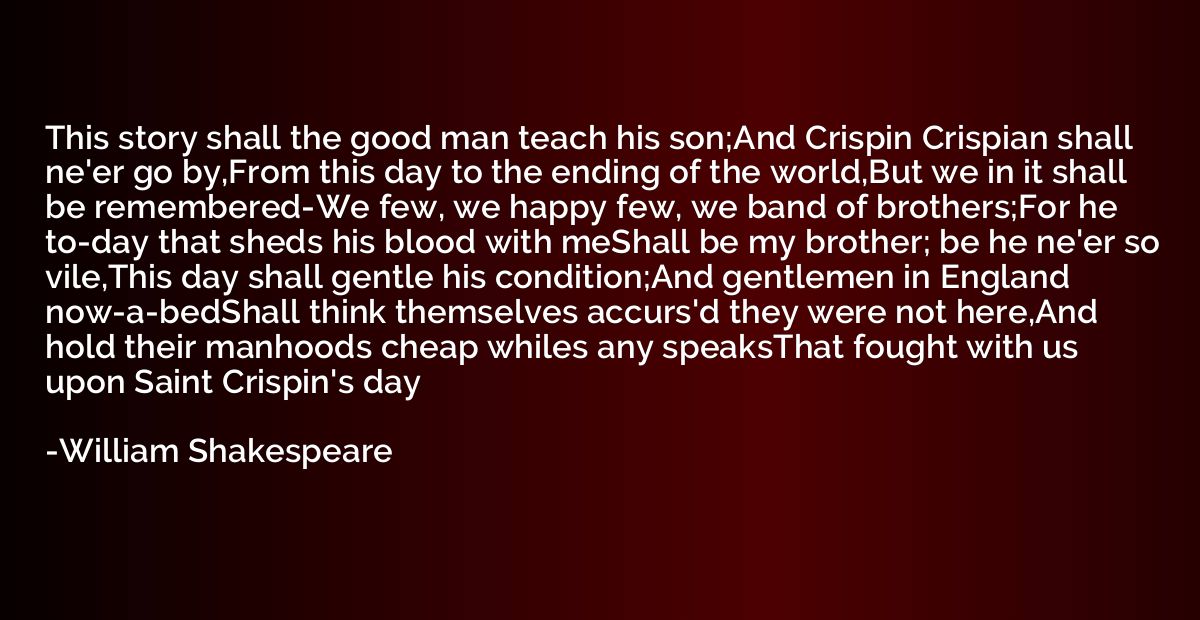
Summary
This quote is from William Shakespeare's play, Henry V, during which the title character gives a rousing speech to inspire his soldiers before battle. The quote reflects the idea that those who fight together and shed their blood in battle form a strong bond, becoming a "band of brothers." It implies that the actions taken on this day of battle, Saint Crispin's day, will be remembered, giving a sense of honor and camaraderie to the soldiers. It also suggests that those who were not present in the fight will feel a sense of shame and inferiority for not participating.



